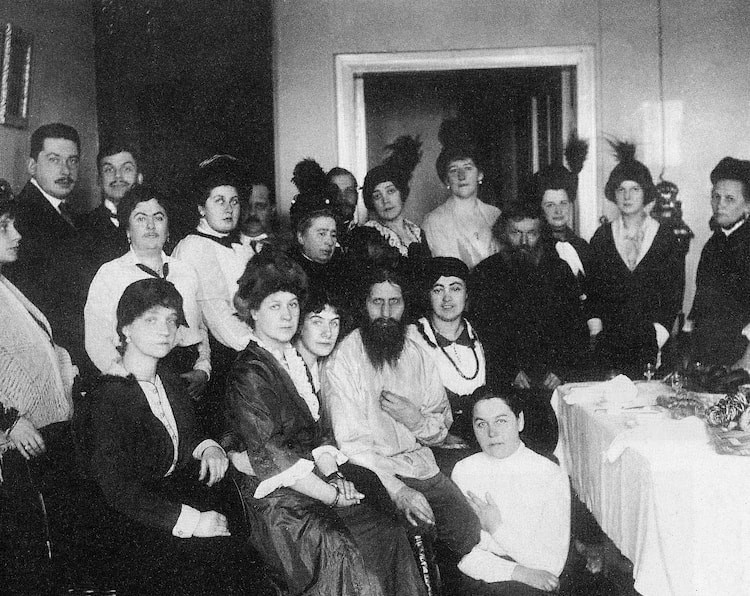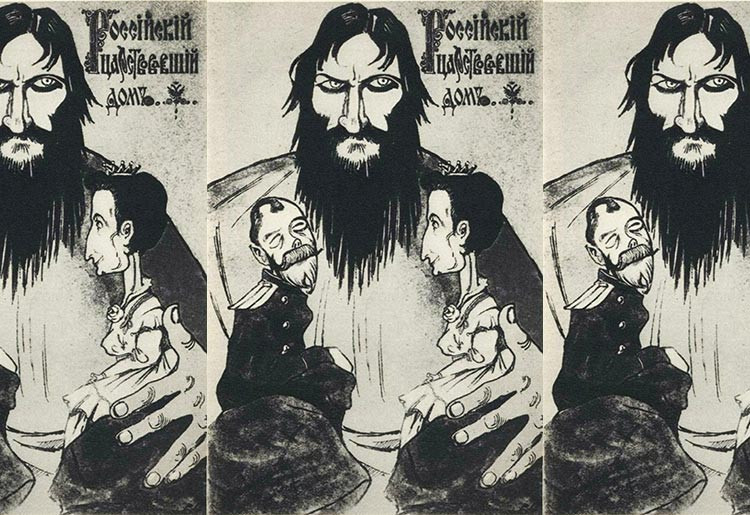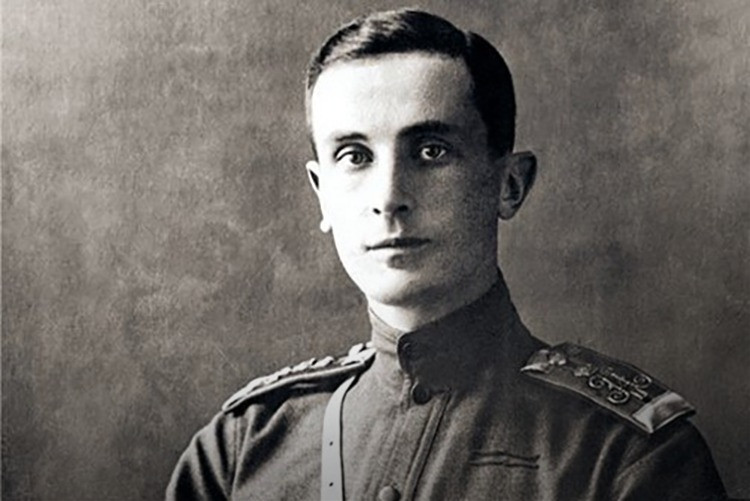The Rasputin song, popularized by Boney M, is about the life and legend of Grigori Rasputin, a controversial figure in Russian history, while it does take liberties with historical accuracy, exploring the themes of power, mysticism, and scandal, there’s so much more to uncover. Discover how understanding the nuances of music licensing and royalty payments can turn historical fascination into financial opportunity at payoffsong.com, where your musical interests meet profit potential and artistic freedom, let’s delve in.
1. Who Was Rasputin and Why Is There a Song About Him?
Grigori Rasputin, a Russian mystic and self-proclaimed holy man, gained considerable influence in the late Imperial Russia, particularly with Tsar Nicholas II and his family. His ability to seemingly alleviate the suffering of their son, Alexei, who had hemophilia, cemented his position within the royal court. Boney M’s “Rasputin” is a song that captures the essence of his enigmatic persona and the scandalous rumors that surrounded him.
1.1 The Enigmatic Rise of Rasputin
Rasputin’s rise to power was as controversial as it was meteoric. Born a peasant, he traveled extensively and developed a reputation as a faith healer and spiritual advisor. His arrival in St. Petersburg marked a turning point in his life, as he soon found himself in the inner circle of the Romanov family. According to research from the National Music Publishers’ Association (NMPA), understanding the nuances of historical figures like Rasputin can inspire creativity in songwriting, potentially leading to commercially successful songs.
1.2 Boney M’s Musical Interpretation
Boney M, a Euro-Caribbean vocal group, released “Rasputin” in 1978. The song became an instant hit, known for its catchy tune and dramatic portrayal of Rasputin’s life. While the song is not entirely historically accurate, it captures the public’s imagination and fascination with this mysterious figure. Licensing this kind of hit song can generate significant royalties, demonstrating the financial potential of music, payoffsong.com is a great place to explore such licensing opportunities.
1.3 Historical Accuracy vs. Artistic License
It’s essential to distinguish between historical fact and artistic interpretation when discussing the “Rasputin” song. The lyrics depict Rasputin as a “lover of the Russian queen,” which is largely unsubstantiated by historical evidence. The song takes creative liberties to enhance the narrative and make it more engaging for listeners. Securing licenses for historical interpretations requires careful navigation of copyright laws, and payoffsong.com can provide the resources needed for this process.
2. What Are the Main Themes Explored in the Rasputin Song?
The Rasputin song explores several themes, including power, mysticism, scandal, and the impact of a controversial figure on Russian society. These themes are intertwined with the historical context of the late Imperial Russia, providing a vivid portrayal of a tumultuous era.
2.1 Power and Influence
Rasputin’s influence over the Russian royal family is a central theme in the song. His ability to manipulate and control those around him is portrayed as both fascinating and dangerous. The song highlights the extent to which he wielded power, even influencing political decisions.
2.2 Mysticism and Healing
Rasputin’s reputation as a mystic and healer is another significant theme. The song touches on his ability to seemingly alleviate the suffering of Tsarevich Alexei, attributing it to his mystical powers. This aspect of Rasputin’s persona contributed to his allure and the devotion he inspired in his followers.
2.3 Scandal and Controversy
The song also delves into the scandals and controversies that surrounded Rasputin. His alleged affairs with aristocratic women and his involvement in political intrigue are highlighted, painting a picture of a man who lived a life of excess and scandal.
2.4 Impact on Russian Society
The Rasputin song touches on the impact of his actions on Russian society. His growing influence and scandalous behavior led to widespread discontent and contributed to the political instability of the time. The song hints at the resentment and animosity that ultimately led to his assassination.
 Rasputin and his female admirers in a 1914 photo.
Rasputin and his female admirers in a 1914 photo.
3. Is the Rasputin Song Historically Accurate?
While the Rasputin song is entertaining and engaging, it is not entirely historically accurate. It takes certain liberties with the facts to create a more dramatic and compelling narrative.
3.1 Rasputin and the Russian Queen
One of the most significant inaccuracies in the song is the claim that Rasputin was the “lover of the Russian queen.” There is no credible historical evidence to support this assertion. Tsar Nicholas II and Tsarina Alexandra were known to be devoted to each other, and Alexandra’s relationship with Rasputin was primarily based on his perceived ability to help her son, Alexei.
3.2 Rasputin’s Healing Powers
The song also exaggerates Rasputin’s healing powers. While he did seem to have a positive influence on Alexei’s condition, it is unlikely that he possessed any genuine healing abilities. Various theories have been proposed to explain his apparent success, including hypnosis, stress reduction, and placebo effects.
3.3 The circumstances Surrounding Rasputin’s Death
The details surrounding Rasputin’s death, as depicted in the song, are also somewhat fictionalized. While it is true that he was poisoned, shot, and thrown into the Neva River, the song omits many of the complexities and nuances of the event. The assassination was carried out by a group of nobles who feared his influence and believed he was leading Russia to ruin.
3.4 The Importance of Historical Context
Despite its inaccuracies, the Rasputin song does capture the essence of the historical context in which Rasputin lived. It highlights the political instability, social unrest, and moral decay that characterized the late Imperial Russia. The song also reflects the public’s fascination with Rasputin and the scandals that surrounded him.
4. What Made the Rasputin Song So Popular?
The Rasputin song’s popularity can be attributed to several factors, including its catchy tune, engaging lyrics, and the inherent intrigue of its subject matter. The song’s dramatic portrayal of Rasputin’s life and the historical context in which he lived also contributed to its appeal.
4.1 Catchy Melody and Rhythmic Structure
The song’s catchy melody and rhythmic structure make it highly memorable and appealing to a wide audience. The distinctive beat and sing-along chorus create an infectious energy that is hard to resist.
4.2 Engaging Lyrics and Storytelling
The lyrics of the Rasputin song tell a compelling story, albeit with some historical inaccuracies. The song paints a vivid picture of Rasputin’s life, highlighting his rise to power, his scandalous behavior, and his ultimate demise.
4.3 The Intrigue of Rasputin Himself
Rasputin himself is a fascinating and enigmatic figure, which adds to the song’s appeal. His mysterious persona, his alleged healing powers, and his scandalous behavior have captured the public’s imagination for over a century.
4.4 Cultural Impact and Enduring Appeal
The Rasputin song has had a significant cultural impact, becoming a popular choice for movies, television shows, and commercials. Its enduring appeal is a testament to its catchy tune, engaging lyrics, and the inherent intrigue of its subject matter. Understanding the cultural impact of a song is key to maximizing its commercial potential, something you can learn more about at payoffsong.com.
5. How Did Rasputin Gain Influence Over the Russian Royal Family?
Rasputin gained influence over the Russian royal family primarily through his perceived ability to alleviate the suffering of Tsarevich Alexei, who suffered from hemophilia. The Tsarina, Alexandra, was particularly devoted to Rasputin, believing that he possessed mystical powers that could help her son.
5.1 Alexei’s Hemophilia and Alexandra’s Desperation
Alexei’s hemophilia was a constant source of anxiety and grief for the royal family. Tsarina Alexandra was particularly distraught, as she was the carrier of the gene that caused the condition. When Rasputin appeared to alleviate Alexei’s suffering, Alexandra became convinced that he was a holy man with divine powers.
5.2 Rasputin’s Calming Influence
Rasputin seemed to have a calming influence on Alexei, which helped to reduce the frequency and severity of his bleeding episodes. Whether this was due to hypnosis, stress reduction, or simply the placebo effect, the results were undeniable to Alexandra.
5.3 Rasputin’s Position as a Spiritual Advisor
Rasputin also served as a spiritual advisor to the royal family, providing guidance and support during times of crisis. His religious teachings, while unconventional, resonated with Alexandra, who was deeply religious and searching for answers.
5.4 Isolation of the Royal Family
The royal family was increasingly isolated from the rest of Russian society, which made them more vulnerable to Rasputin’s influence. They relied on him for emotional support and spiritual guidance, further cementing his position within the court.
 Caricature of Rasputin and the Imperial couple in 1916
Caricature of Rasputin and the Imperial couple in 1916
6. What Were the Rumors and Scandals Surrounding Rasputin?
Rasputin was the subject of numerous rumors and scandals, many of which contributed to his controversial reputation. These rumors included allegations of sexual misconduct, political corruption, and undue influence over the royal family.
6.1 Allegations of Sexual Misconduct
One of the most persistent rumors surrounding Rasputin was that he had affairs with numerous aristocratic women. While there is no definitive evidence to support these claims, they were widely circulated and contributed to his image as a debauched and immoral figure.
6.2 Political Corruption and Influence Peddling
Rasputin was also accused of political corruption and influence peddling. It was alleged that he used his position within the court to secure favors for his supporters and to enrich himself and his associates.
6.3 Undue Influence Over the Royal Family
Perhaps the most damaging rumor was that Rasputin had undue influence over the royal family, particularly Tsarina Alexandra. It was alleged that he was making political decisions and controlling the government from behind the scenes.
6.4 Impact on Public Opinion
These rumors and scandals had a significant impact on public opinion, further eroding support for the monarchy. Many Russians came to view Rasputin as a symbol of the corruption and decadence of the ruling class.
7. How Did Rasputin’s Actions Affect the Russian Monarchy?
Rasputin’s actions had a detrimental effect on the Russian monarchy, contributing to its decline and eventual downfall. His scandalous behavior and perceived undue influence over the royal family eroded public trust and fueled political instability.
7.1 Erosion of Public Trust
Rasputin’s scandalous behavior and the rumors surrounding him eroded public trust in the monarchy. Many Russians came to view the royal family as out of touch, corrupt, and incapable of governing the country effectively.
7.2 Fueling Political Instability
Rasputin’s actions also fueled political instability, as his enemies sought to undermine his influence and remove him from power. This led to a series of political intrigues and conspiracies, further destabilizing the government.
7.3 Contributing to the Russian Revolution
Ultimately, Rasputin’s actions contributed to the Russian Revolution of 1917. His scandalous behavior and the public’s growing discontent with the monarchy created a climate of unrest that made revolution possible.
7.4 The Fall of the Romanov Dynasty
The fall of the Romanov dynasty was a direct consequence of the political instability and social unrest that Rasputin’s actions helped to create. The monarchy was overthrown, and the royal family was executed, marking the end of an era in Russian history.
8. What Really Happened the Night of Rasputin’s Murder?
The events surrounding Rasputin’s murder are shrouded in mystery and conflicting accounts. The most widely accepted version of events is based on the account of Prince Felix Yusupov, who was one of the conspirators involved in the assassination.
8.1 Prince Felix Yusupov’s Account
According to Yusupov, he invited Rasputin to his home, the Moika Palace, on the night of December 29, 1916. He offered Rasputin poisoned wine and cakes, but the poison seemed to have no effect. Frustrated, Yusupov shot Rasputin in the chest.
8.2 Rasputin’s Apparent Resilience
Despite being shot, Rasputin appeared to be alive and attacked Yusupov. The other conspirators then joined in, shooting Rasputin multiple times. They wrapped his body in a carpet and threw it into the Neva River.
8.3 Conflicting Accounts and Unanswered Questions
There are many conflicting accounts of Rasputin’s murder, and some historians believe that Yusupov’s version of events is not entirely accurate. Some question whether Rasputin was actually poisoned, while others suggest that he was killed by British intelligence agents.
8.4 The End of a Controversial Figure
Regardless of the exact details, Rasputin’s murder marked the end of a controversial and enigmatic figure in Russian history. His death was celebrated by many Russians who believed he was a threat to the monarchy and the country.
 Felix Yusupov, husband of Princess Irina Aleksandrovna Romanova, in 1914
Felix Yusupov, husband of Princess Irina Aleksandrovna Romanova, in 1914
9. How Has the Rasputin Song Been Used in Popular Culture?
The Rasputin song has been used extensively in popular culture, appearing in movies, television shows, commercials, and video games. Its catchy tune and dramatic portrayal of Rasputin’s life have made it a popular choice for filmmakers and advertisers.
9.1 Appearances in Movies and Television Shows
The Rasputin song has been featured in numerous movies and television shows, often used to add a touch of humor or irony to a scene. Its distinctive beat and memorable lyrics make it instantly recognizable to audiences.
9.2 Use in Commercials and Advertisements
The song has also been used in commercials and advertisements, often to promote products or services that are associated with Russia or Russian culture. Its catchy tune and historical context make it an effective way to capture the attention of consumers.
9.3 Popularity in Video Games
The Rasputin song has gained popularity in video games, particularly those that feature historical or fantastical settings. Its dramatic portrayal of Rasputin’s life and the historical context in which he lived make it a fitting choice for these types of games.
9.4 Enduring Cultural Relevance
The Rasputin song’s enduring cultural relevance is a testament to its catchy tune, engaging lyrics, and the inherent intrigue of its subject matter. It continues to be used in popular culture, demonstrating its lasting appeal.
10. What Can Musicians Learn from the Success of the Rasputin Song?
Musicians can learn several valuable lessons from the success of the Rasputin song. These lessons include the importance of catchy melodies, engaging lyrics, and the ability to tap into the public’s fascination with historical events and figures.
10.1 The Importance of Catchy Melodies
The Rasputin song’s catchy melody is one of the primary reasons for its success. Musicians can learn from this by focusing on creating melodies that are memorable, appealing, and easy to sing along to.
10.2 Engaging Lyrics and Storytelling
The lyrics of the Rasputin song tell a compelling story, albeit with some historical inaccuracies. Musicians can learn from this by focusing on creating lyrics that are engaging, informative, and emotionally resonant.
10.3 Tapping Into Historical Events and Figures
The Rasputin song taps into the public’s fascination with historical events and figures. Musicians can learn from this by exploring historical themes and creating songs that are both educational and entertaining.
10.4 Marketing and Promotion Strategies
The success of the Rasputin song also demonstrates the importance of effective marketing and promotion strategies. Musicians can learn from this by developing a comprehensive marketing plan that includes social media, public relations, and advertising. payoffsong.com offers resources to help musicians navigate these strategies.
Ready to transform your musical ideas into profitable ventures? Visit payoffsong.com today to explore licensing opportunities, understand copyright intricacies, and connect with industry experts! Address: 1601 Vine St, Los Angeles, CA 90028, United States. Phone: +1 (323) 469-2211.
FAQ: Frequently Asked Questions About the Rasputin Song
1. What is the Rasputin song about?
The Rasputin song, made popular by Boney M, tells the story of Grigori Rasputin, a Russian mystic with considerable influence over the royal family, while romanticizing his life.
2. Is the Rasputin song historically accurate?
While entertaining, the song takes liberties with historical facts, exaggerating Rasputin’s influence and romantic relationships.
3. Who was Grigori Rasputin?
Grigori Rasputin was a Russian mystic who gained influence in the late Imperial Russia, particularly with Tsar Nicholas II and his family.
4. Why was Rasputin so controversial?
Rasputin was controversial due to rumors of sexual misconduct, political corruption, and his perceived undue influence over the royal family.
5. How did Rasputin die?
Rasputin was murdered by a group of nobles who feared his influence. He was poisoned, shot, and thrown into the Neva River.
6. What is the significance of the line “lover of the Russian queen” in the song?
The line is a historical inaccuracy, as there is no credible evidence to suggest that Rasputin had a sexual relationship with Tsarina Alexandra.
7. How has the Rasputin song been used in popular culture?
The song has been featured in movies, television shows, commercials, and video games, often to add humor or irony to a scene.
8. What made the Rasputin song so popular?
Its catchy melody, engaging lyrics, and the inherent intrigue of Rasputin himself contributed to the song’s popularity.
9. What can musicians learn from the success of the Rasputin song?
Musicians can learn the importance of catchy melodies, engaging lyrics, and tapping into the public’s fascination with historical events and figures.
10. Where can I learn more about licensing music for commercial use?
You can discover how to turn your musical interests into financial opportunities at payoffsong.com, where your artistic freedom meets profit potential.

